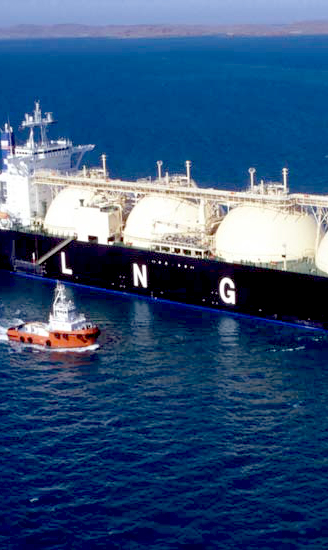New round in offshore gas game
 Conditions for workers at the offshore Gorgon gas plant will be investigated by the West Australian government, if a push by three big unions is successful.
Conditions for workers at the offshore Gorgon gas plant will be investigated by the West Australian government, if a push by three big unions is successful.
Reports say that the Maritime Union of Australia (MUA), Construction Forestry Mining and Energy Union (CFMEU) and Australian Workers Union (AWU) have joined forces to further a stoush over Chevron’s Barrow Island Gorgon plant.
The Barrow Island operation processes gas for export from the Gorgon gas fields on the sea floor off WA.
The MUA in particular has been running a campaign against operator Chevron for several years on a range of claims, including that the company is not complying with obligations to hire local workers.
US-based energy giant Chevron is suing the MUA for more than $20 million over a 2012 strike, which the company says caused delays and cost blowouts at the $57 billion gas project.
Two hundred workers walked off the job at Perth’s Australian Marine Complex over safety complaints, and Chevon claims the union adopted go-slow tactics in loading crucial building materials when Fair Work ordered them back to work.
Now, the unions have delivered a petition to Parliament calling for an investigation into whether Chevron has complied with section 15 of its operating agreement.
The agreement, struck with a Labor state government back in 2003, requires Chevron to find labour in WA or Australia first, unless it could demonstrate it was not reasonable or economically possible to do so.
The union claims it has a list of up to 700 able seafarers that would want jobs on the Gorgon project, to show Chevron's sub-contractors favour vessels with foreign crews.
Chevron does not directly hire workers for offshore projects, but the unions say it is responsible for making sure sub-contractors meet the obligations of the Gorgon Gas Processing and Infrastructure Project Agreement.
The MUA is also fighting on a different front, against dozens of vessel operators that employ offshore workers such as cooks, laundry hands and stewards.
The MUA was seeking a 22 per cent pay increase over four years for the workers that currently earn about $150,000 a year. The union has indicated it would be open to a 16.5 per cent increase offered by the Australian Mines and Metals Association, which says workers actually earn between $183,000 and $247,000.
Meanwhile, analysts say the global gas price will take another big hit when LNG from the US floods the market, when that country’s exports start in 2015.
With nearly $200 billion in domestic gas projects coming online around the same time, Australia may not have picked the best time to become the world's largest producer of the fuel.







 Print
Print